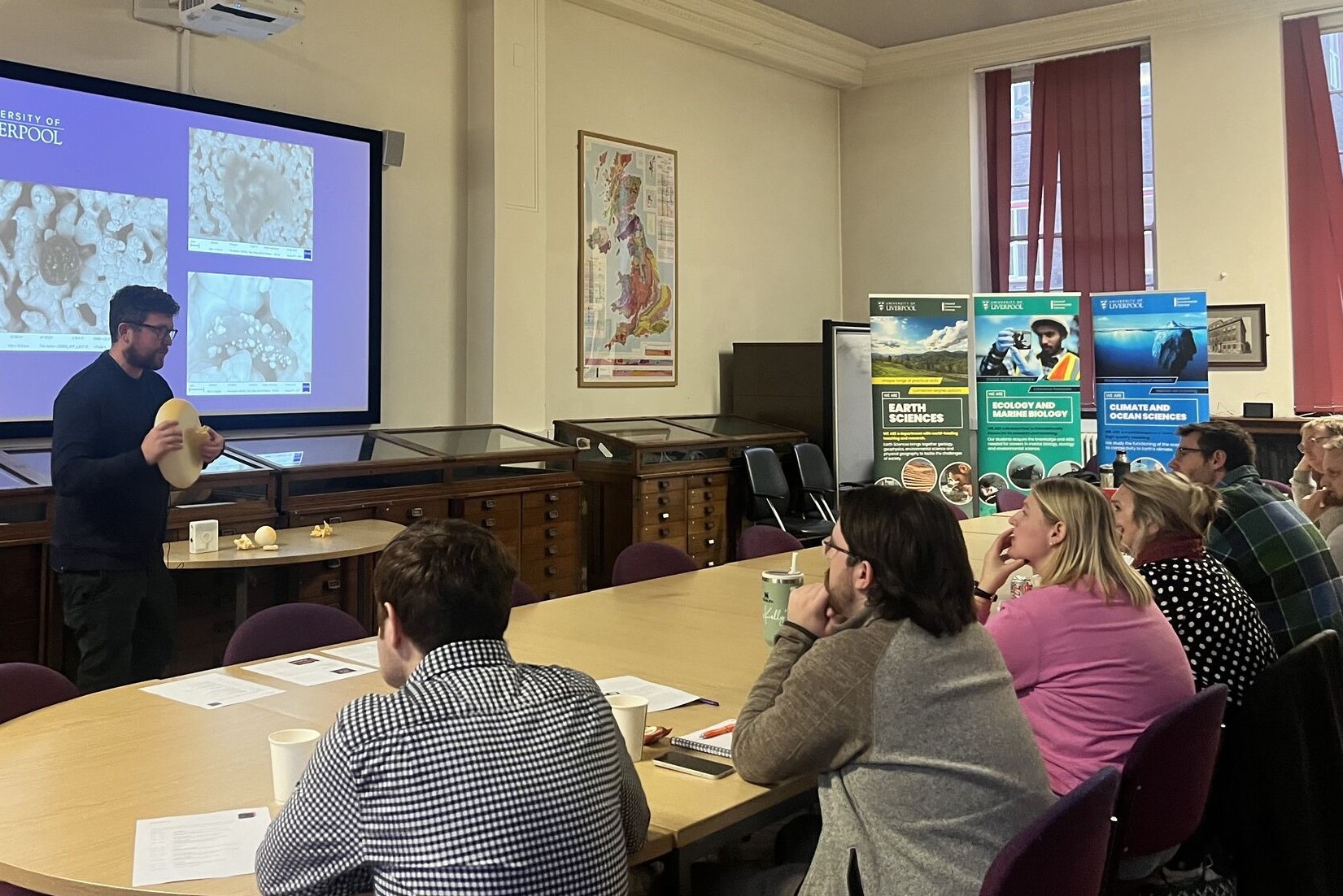A Continuing Professional Development (CPD) day for secondary school teachers provided the opportunity to show how University air quality research could be integrated into the seondary school curriculum.
The University of Liverpool’s School of Environmental Sciences partnered with the PTI Education and St Edward’s School to host the `Clean Air, Clean Lives: Air Pollution and Health Impacts Across the Curriculum’ event which took place on campus.
Professor Andy Plater opened up the proceedings by highlighting the current gaps in the curriculum regarding air quality education and provided insights on how University research could be integrated across Key Stages 3-5 in both Geography and Science and directly fed into classroom teaching. He shared ideas for lesson plans that would empower teachers to bring this important topic into their schools.
Dr Alice Lee, a paediatrician from Alder Hey Children’s Hospital who is pursuing a PhD in respiratory health, followed with a session on the impacts of poor air quality on children. Her research provided invaluable context for teachers, making the connection between respiratory issues and environmental factors clearer. This reinforced the importance of educating students on these issues early on, especially since children are particularly vulnerable to the effects of air pollution.
A key part of the day was a roundtable discussion where teachers explored ways to create engaging lesson plans and field activities. They discussed how using real-world data and simple, affordable tools like low-cost air quality monitors, developed by Dr Jonny Higham at the University of Liverpool, could help students better understand air pollution.
The monitors, showcased during the event, offer a safe and accessible way for schools to collect data, encouraging hands-on learning experiences for students. The flexibility of the Year 7 and 8 curriculum, where there is more time to introduce interdisciplinary topics, was highlighted as an ideal period for incorporating air quality into lessons.
Dr Jonny Higham presented his research which includes a large network of air quality sensors installed across Liverpool. This collaborative work, involving Alder Hey Children’s Hospital, uses artificial intelligence and machine learning techniques to assess the real-time impacts of air quality on children’s health. He provided teachers with the latest insights into how the technology and data can inform health-related education.
The global context was brought into focus by Dr Sep Saleh, who presented the Clean Air Africa project. She discussed the profound impact that small interventions—such as switching from wood to gas for cooking—can have on air quality in African communities. Her talk connected the global and local perspectives on air pollution and provided further resources for teachers to incorporate into their teaching.
The day concluded with a hands-on workshop where teachers collaborated to develop lesson plans based on the research presented. Each teacher left with a full plan to implement over the next school year, demonstrating the practical outcomes of the event.
Dr Jonny Higham said: “The PTI event marked the beginning of a fantastic partnership. By communicating our research on air quality through secondary school teachers, we can reach students earlier and help them understand how poor air quality directly impacts health, particularly for vulnerable groups like children.
“The low-cost air quality monitors developed here at the University of Liverpool, which were showcased at the event, provide a practical and accessible tool for schools. These monitors enable teachers to bring real-world data into their lessons, helping students grasp the importance of air quality and its effects on everyday life. We look forward to continuing this work at future events, including one we hope to host in London, where PTI is based.”
Professor Andy Plater added: “The secondary curriculum offers a lot of flexibility, particularly in terms of time, and there is huge potential to integrate air quality topics at various levels. I hope today’s event has given teachers valuable tools and insights for future lesson planning. The low-cost air monitors showcased today open up new opportunities for safe, hands-on learning, allowing students to engage with air pollution in a meaningful way. This approach can bring real scientific inquiry into the classroom and help raise awareness of critical environmental issues.”
Dr Jonny Higham also organises an annual Air Quality Roundtable for the Liverpool City Region. This year’s roundtable event brought together more than 50 stakeholders, including councilors, industry representatives, charity organisations, academics, and medical professionals, to discuss the impact of reducing air pollution levels on child respiratory health.
